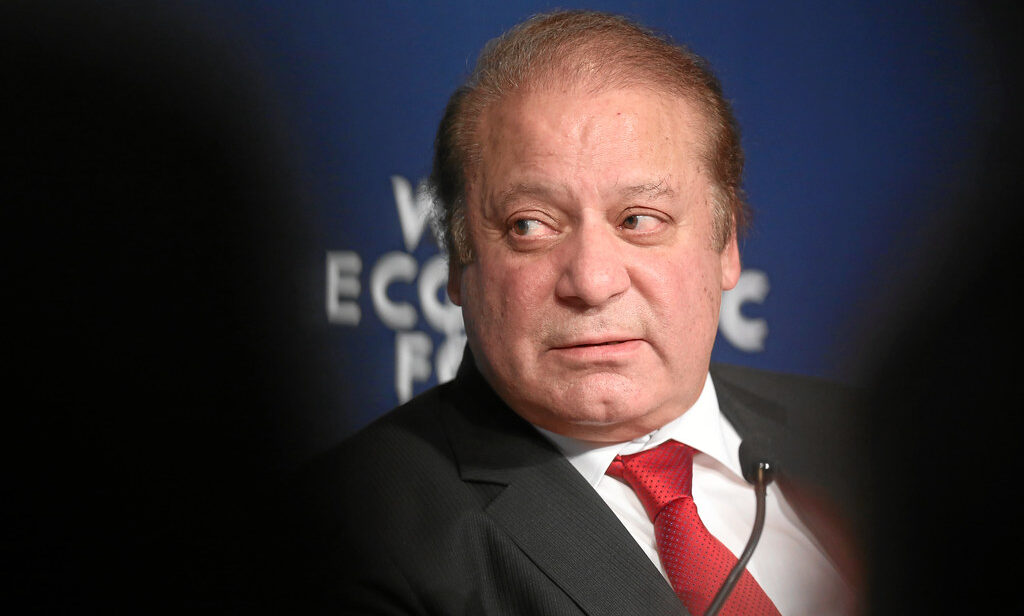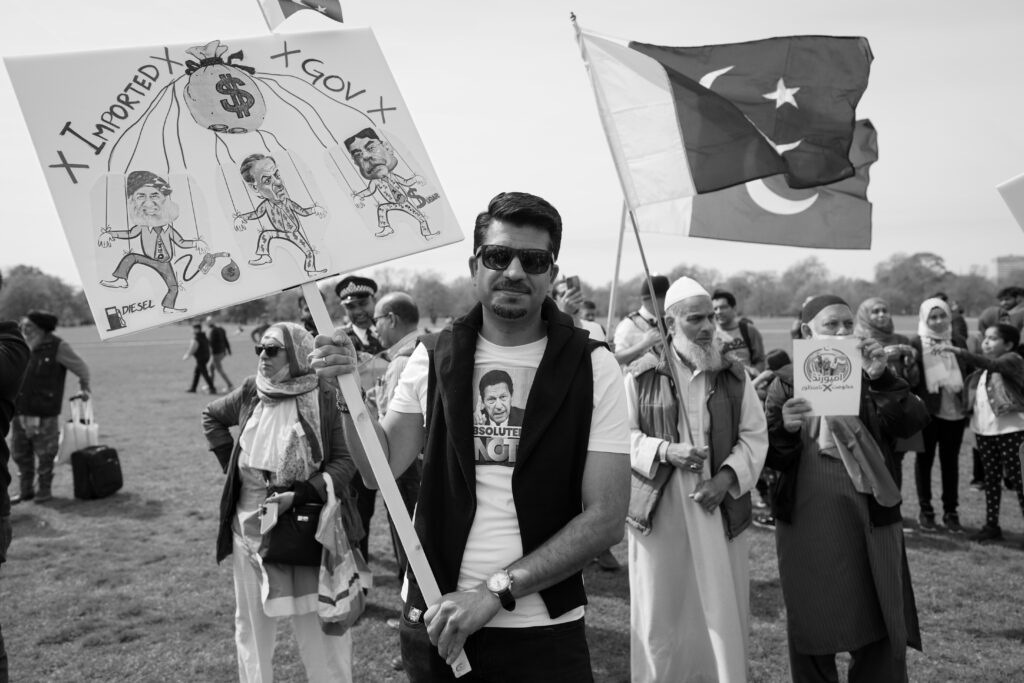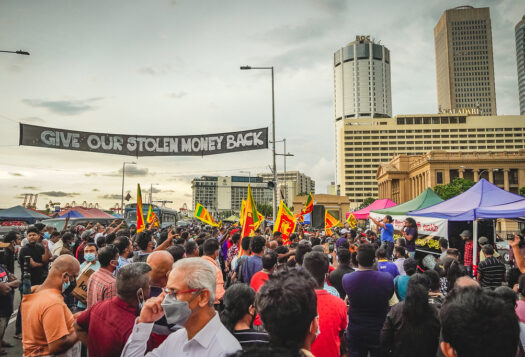
In the wake of last year’s devastating floods, the revocation of a brittle truce with militants, the ousting of former-cricketer-turned-Prime Minister Imran Khan, public uproar over rising costs, and persistent economic challenges, 2023 has left Pakistan at a crossroads. As Pakistan navigates through these interwoven dilemmas, the economic turmoil, political instability, and security challenges form a symphony of uncertainty – underlined by the looming 2024 general elections.
Economic Turmoil: Enduring the Fiscal Storm
Pakistan wrestles with an enduring economic crisis, striving to fulfill its external financial obligations to avert default. Soaring inflation and minimal foreign exchange reserves have contributed to the economic downturn. Despite the steady flow of capital into the nation, top-level mismanagement and institutionalized corruption have steadily depleted foreign exchange reserves and increased the overwhelming debt. Ongoing negotiations between Pakistan and the International Monetary Fund (IMF) have repeatedly stalled due to the reluctance of both the former ruling party and the current coalition government to undergo adequate monetary and fiscal reforms. Several of Pakistan’s partners, such as China and Saudi Arabia, have emerged as significant players by providing temporary loan rollovers and financial support.
The economic crisis further exacerbates basic security concerns, including fuel supply shortages and energy austerity measures, that have triggered widespread civil unrest. One significant indicator of a struggling economy is the grounding of nearly 400 flight operations by national flag carrier Pakistan International Airlines (PIA) in the fall. Several credible sources indicate that two decades of Chinese lending to Pakistan has contributed to more of the country’s external debt than previously estimated. That Pakistan is one of the top three recipients of Chinese loans is particularly concerning to leading experts.
Political Unrest as General Elections Loom Large
In 2023, Pakistan’s domestic politics went through numerous bouts of upheaval. Shehbaz Sharif, the brother of the longest-serving Prime Minister, Nawaz Sharif, was appointed as the prime minister in April 2022 after Imran Khan was ousted due to allegations of poor governance and policy mismanagement; Khan claims a falling out with the military elites led to his ousting, rallying a series of widespread protests in his defense. Shehbaz Sharif’s tenure as the country’s leader from April to August resulted in temporary political stagnation. During Shehbaz Sharif’s tenure, a turning point occurred on May 9 following the detention of Khan. The protests, which erupted spontaneously in Lahore, Peshawar, and other major cities, witnessed participants blockading traffic and expressing vehement anti-military sentiments.
Several credible sources indicate that two decades of Chinese lending to Pakistan has contributed to more of the country’s external debt than previously estimated.
The May 9 protests were significant not simply because of the number of protestors but because of what they were asserting. For example, demonstrators in Mardan chanted “death to the Pakistani Army” outside a military facility, accusing the army of corruption. The aftermath of the protests witnessed a severe crackdown, with more than ten protesters killed and 5,000 PTI supporters detained. Khan, though distancing himself from the attacks on military installations, faced internal dissent as some of his party leaders and aides abandoned him, condemning the violence against the army establishment. The military’s response to the protests was unprecedented, resulting in three commanders being dismissed and disciplinary actions against 15 top-level officers who exhibited outward displays of support for Khan. This move was one of the strongest actions taken by the military against its own leadership in decades, further intensifying the rift between the army and the civilian leadership.
On August 9, 2023, Prime Minister Shehbaz Sharif recommended that parliament dissolve to trigger general elections; the dissolution signaled at least an outward commitment to democratic renewal. The turmoil has raised concerns among experts regarding the potential politicization of the Election Commission of Pakistan (ECP) by military-backed elites. The delays in provincial and other polls fuel skepticism about the ECP’s impartiality and its ability to ensure fair and timely elections.
In October, Nawaz Sharif returned from self-imposed exile in the UK, marked by a historic rally in Lahore. The timing of his return, combined with previous corruption allegations stemming from the Panama Papers leak, gives rise to credible speculation that he is receiving support from the army – especially considering the military’s involvement in the May 9 protests. In November, a court overturned Nawaz Sharif’s conviction in a corruption case, requiring only an acquittal from the Panama Papers corruption case to meet the eligibility criteria for participating in the upcoming election.
Anwaar-ul-Haq Kakar is currently the appointed caretaker prime minister, and his credible links with the military are widely acknowledged. The appointment of a caretaker prime minister without a mandate raises doubts about governance legitimacy, especially in light of Nawaz Sharif’s return and other recent developments.

Nawaz’s acquittals and potential political comeback, which appears to be backed by Pakistan’s military, may draw international scrutiny. As Pakistan heads into 2024, democratic nations will likely call for anti-corruption efforts to mitigate the diplomatic backlash against the judiciary’s overturn of Nawaz’s corruption convictions. These unstable political transitions create significant uncertainty for crucial bilateral and multilateral lenders.
As Pakistan confronts the multifaceted challenges of economic turmoil and political unrest, the rising rates of terrorism pose a critical threat to the country’s stability. A recent report by the Islamabad-based Center for Research and Security Studies highlights a surge in militant attacks, resulting in over 700 fatalities in the first nine months of 2023. The provinces bordering Afghanistan, Balochistan and Khyber Pakhtunkhwa, experience 92 percent of all fatalities, most of them security forces. The TTP, the so-called Islamic State-Khorasan (IS-K), and various Baloch separatist groups typically claim responsibility for the attacks. While the violence is currently concentrated in the northwestern provinces, there are ominous signs of its potential spread to other regions, such as Punjab and Sindh. The impact of this uptick in violence on elections is a concern for all Pakistan watchers.
Charting the International Course Through Domestic Political Upheaval
Sino-Pakistan Symphony: Harmony Amidst Political Flux
This symphony of domestic challenges has implications for Pakistan’s foreign relations, as they have the potential to alter Pakistan’s interactions with key regional players. Pakistan’s evolving economic relationship with China, perhaps its most significant strategic partner, is particularly notable as Pakistan formally seeks membership in BRICS – a group of emerging economies that includes Brazil, Russia, India, China, and South Africa. As Islamabad seeks to deepen its ties with Beijing, the November high-level security meeting affirmed Pakistan’s commitment to safeguard Chinese personnel in BRI projects. That same month, Pakistan hosted an advanced Chinese destroyer during the Sea Guardians naval drill, underscoring the countries’ deepening bilateral defense cooperation.
Bridging Borders: Pakistan’s Ties with Immediate Neighbors
Islamabad’s relations with two of its other contiguous neighbors, Kabul and New Delhi, remain fraught. For Pakistan, there are three primary issues that persist in its relationship with Afghanistan. Firstly, sporadic skirmishes typically occur along the volatile Afghanistan-Pakistan border between Pakistani and Taliban forces, leading to temporary cross-border closures, with both sides exchanging gunfire over varying issues. In September 2023, a key cross-border closure caused an estimated $1 million loss over the span of one week.
Pakistan’s diplomatic efforts to pressure the Taliban to prevent cross-border attacks from militant groups, especially the TTP, reflect the evolving nature of these regional ties. Third, Pakistan’s implementation of the Illegal Foreigners Repatriation Plan in late 2023 has triggered widespread public unrest. The declaration primarily impacts nearly 2 million undocumented Afghan refugees residing inside Pakistan. Public opposition has emerged as activists express concerns about the policy’s implications for cross-border trade and travel, which has led to protest campaigns along the Chaman-Spin Boldak border.
Islamabad’s relations with two of its other contiguous neighbors, Kabul and New Delhi, remain fraught.
Pakistan’s relations with India remain marginalized, with recent cricket clashes highlighting the lopsided nature of the historic rivalry. The two nations’ diminishing economic ties and cultural exchanges mirror the broader trend of India prioritizing relationships with other regional players. The surge in nationalism and public hostility on both sides further exacerbates the diplomatic challenges, raising questions about the prospects for future cooperation. As several experts and government officials contend that Pakistan has strategically employed terrorism as a proxy to achieve its objectives against India, a country it perceives as a national security threat, the ripple effect extends to broader regional implications in the medium term. It exacerbates existing bilateral relations and fosters greater mistrust and instability between two nuclear-armed neighbors with a history of multiple wars.
Fractured Foundations: Pakistan’s Unraveling Ties with the U.S.
The aftermath of the U.S. withdrawal from Afghanistan has changed the dynamic between Islamabad and Washington. The U.S. concern about the resurgence of terrorist groups in Afghanistan aligns with some of Pakistan’s security interests. The countries continue to cooperate in multiple other areas, including disaster management, security, and trade. However, the broader geopolitical rivalry between the U.S. and China presents a looming challenge for Pakistan as the U.S. seeks regional allies to counterbalance China. Pakistan’s subtle juggling faces increasing scrutiny. The U.S.’s diplomatic and military support for Israel following the October 7 Hamas attack poses another challenge in the bilateral relationship, given Pakistan’s firm stance in support of Palestinian autonomy.
At this stage, Pakistan faces economic uncertainties, political transitions, and security challenges amid an escalating militant threat. Given the ongoing upheaval, instability in Pakistan will likely persist after the February 2024 general elections and continue to influence its foreign relations with the U.S., China, and its regional neighbors.
Also Read: Pakistan’s May 9 Protests: Army Crackdown and a State of Exception.
***
Click here to read this article in Urdu.
Image 1: Nawaz Sharif via Flickr.
Image 2: Protests in Pakistan via Wikimedia Commons.


